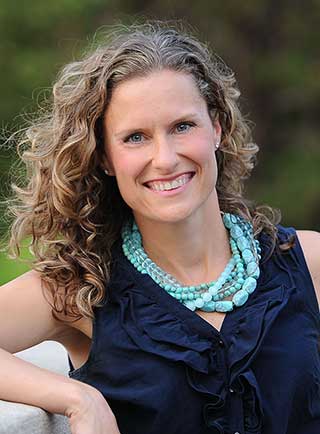|
By Jeanine Roddy, MA, CCC-SLP  In his book, “Last Child in the Woods,” Richard Louv identifies a societal disorder resulting from less green space and outdoor play for children as “nature deficit disorder.” Most researchers agree with him that time outside in natural settings results in smarter, happier and less anxious children. As the American population has become less rural, sports have become more structured and playgrounds more structured, kids are experiencing fewer opportunities for free play and exploration in natural green settings.
Here are some of the benefits your children may gain from time exploring nature:
Increases cognitive abilities and focus - A study by Nancy Wells measured the cognitive function before and after the relocation of inner city children who moved to homes in greener settings. Results indicated that children whose homes improved the most in terms of greenness following relocation also tended to have the highest levels of cognitive functioning following the move. Likewise, a study with children diagnosed with ADHD (Kuo and Taylor, 2004) found increased focus after walking and playing in a park.
Reduces stress - Many adults “escape” the stress of daily life by a weekend at the cabin, a vacation by the seashore or a camping getaway. Does it not follow that the outdoors can also reduce stress in children? Another study by Kuo and Taylor explored mental fatigue in barren settings. The results suggested that nature can restore calmness in the nervous system.
Teaches responsibility - Experiencing the outdoors at an early age can help instill a concern for the environment in children and explore how they, too, can have an impact. Spending time in parks, zoos, and other natural settings can offer educational opportunities that provide an understanding of our connection to the larger world.
Enhances family relationships - Dedicated family time in a natural setting can be a factor in strengthening bonds. In a study of 60 families participating in 18 different outdoor camps, 86% of them reported their experiences reinforced family relationships (Garst, Baughman, Franz, Seidel, 2013).
Improves physical fitness - We know obesity and diabetes are too prevalent in our society. Many of us ensure physical fitness by enrolling our children in organized sports. There certainly can be many benefits derived from organized activities. Louv doesn’t believe these activities are sufficient, especially if played indoors or on artificial surfaces. He says, “while outdoor activities in general help, settings with trees and grass are the most beneficial.” His conclusion was supported in a 2006 study by Bell, Lucas and Dyment: “The Relationship Between School Ground Design and Intensity of Physical Activity.”
There are many ways to incorporate more nature in your children’s lives:
- Participating with them in gardening, hiking, camping, or fruit picking
- Visiting educational settings like the zoo or arboretum
- Encouraging projects like collections of natural objects, or creating art with natural media
- Connecting with organizations like The National Wildlife Foundation, Sierra Club or the Audubon Society.
Take an inventory of your children’s schedules and their play areas. Do they have green areas to explore? Does your family share outdoor activities? With the possibility of so many physical, cognitive and social benefits, you may want to start incorporating more nature in their lives now. About the Author...
Jeanine Roddy, M.A., CCC SLP., has practiced pediatric speech therapy and feeding therapy for over 12 years with proven results in private schools and public schools. She currently is the owner and lead clinician at Frisco Feeding & Speech Therapy. Last Update: 7/26/2018
|

